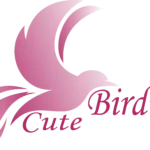In the realm of bird watching and nature appreciation, a bird feeder pole plays a crucial role in attracting our feathered friends. From the material to the height, each aspect contributes to its effectiveness. Let’s dive into the essentials of selecting the ideal bird feeder pole for your backyard oasis.
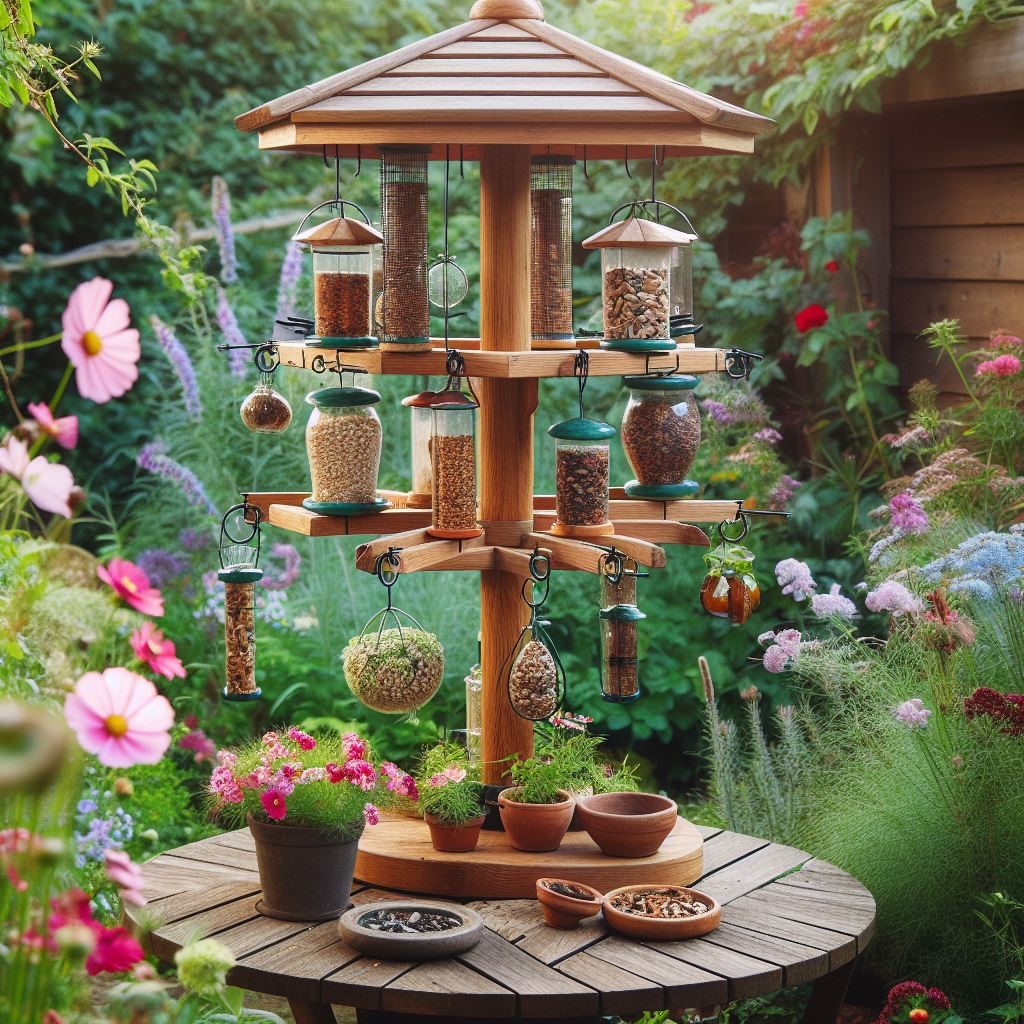
Understanding Different Types of Bird Feeder Poles
Traditional Wooden Poles
Wooden bird feeder poles exude a rustic charm while offering durability. Crafted from cedar or redwood, these poles blend seamlessly with natural surroundings, providing a sturdy base for your feeders.
Metal Poles with Squirrel Baffles
Metal poles, often accompanied by squirrel baffles, are excellent choices for deterring pesky critters. Made from steel or aluminum, these poles boast longevity and strength, ensuring your bird feeders remain untouched by unwanted visitors.
Telescoping Poles for Versatility
Telescoping poles provide unmatched flexibility, allowing you to adjust the height according to your preference. Whether you’re catering to ground-feeding birds or aerial acrobats, these poles adapt effortlessly to varying feeder styles.
PVC Bird Feeder Poles for Low Maintenance
PVC poles offer a low-maintenance alternative without compromising on durability. Resistant to rot and corrosion, these poles require minimal upkeep, making them ideal for busy bird enthusiasts seeking convenience.
Top 3 Bird Feeder Poles on Amazon
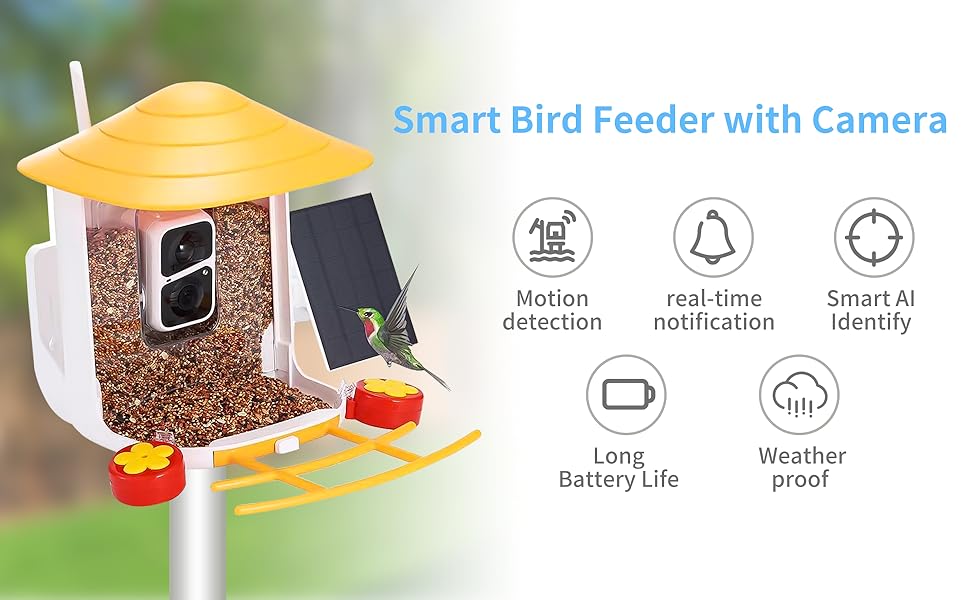
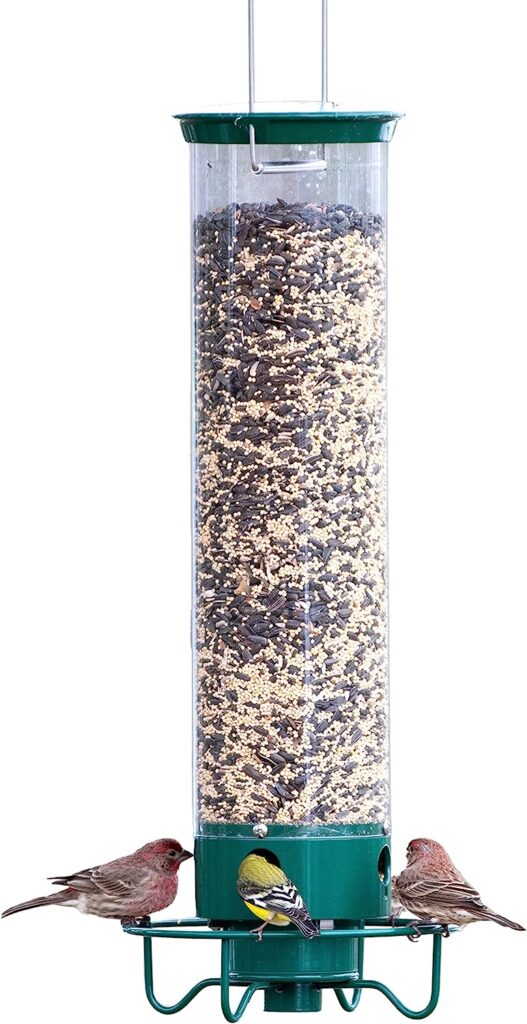
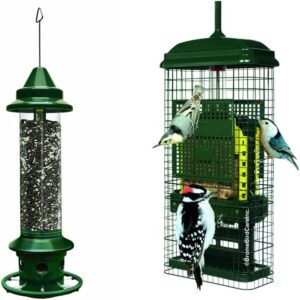
Factors to Consider When Choosing a Bird Feeder Pole
Height Matters
The height of your bird feeder pole is crucial for attracting specific bird species. Opt for taller poles to deter predators while providing a safe haven for birds to feed undisturbed.
Weather Resistance
Select a bird feeder pole crafted from weather-resistant materials to withstand the elements. Whether it’s scorching sun or torrential rain, a durable pole ensures longevity, keeping your feathered visitors well-fed year-round.
Stability and Sturdiness
Ensure your chosen pole offers stability and sturdiness to support the weight of multiple feeders and the birds they attract. A wobbly pole not only poses a risk to the feeders but also compromises the safety of visiting birds.
Easy Installation
Look for bird feeder poles that are easy to install, requiring minimal tools and effort. Simplified installation means you can spend less time assembling and more time enjoying the sights and sounds of avian visitors.
Bird Feeder Pole Maintenance Tips
Regular Cleaning Routine
Maintain a regular cleaning schedule to prevent mold, bacteria, and seed buildup on your bird feeder pole. Use mild soap and water to sanitize the pole and feeders, ensuring a hygienic dining experience for feathered guests.
Check for Wear and Tear
Periodically inspect your bird feeder pole for signs of wear and tear, such as rust or corrosion. Address any issues promptly to prolong the lifespan of your pole and maintain its functionality.
Adjust Feeder Heights
Experiment with different feeder heights to accommodate various bird species and their feeding preferences. By catering to diverse avian needs, you’ll attract a wider array of feathered friends to your backyard sanctuary.
FAQs (Frequently Asked Questions)
- How do I prevent squirrels from accessing my bird feeder pole? Utilize squirrel baffles or invest in a pole specifically designed to deter squirrels.
- Can I customize the height of a telescoping bird feeder pole? Yes, telescoping poles offer adjustable heights, allowing you to tailor the setup to your liking.
- What is the best material for a bird feeder pole in humid climates? Stainless steel or PVC poles are ideal choices for humid climates due to their resistance to corrosion and rot.
- How often should I clean my bird feeder pole? Aim to clean your bird feeder pole and feeders at least once every two weeks to maintain optimal hygiene.
- Are there any bird feeder poles suitable for small outdoor spaces? Yes, compact and lightweight poles are available for smaller outdoor areas, offering space-efficient solutions for bird enthusiasts with limited room.
- Can I attract specific bird species with a certain type of feeder pole? Yes, certain feeder designs and pole heights are tailored to attract specific bird species, allowing you to customize your setup based on desired visitors.
Conclusion
Selecting the perfect bird feeder pole entails careful consideration of various factors, including material, height, and maintenance requirements. By choosing a pole that aligns with your preferences and environmental conditions, you can create a welcoming haven for birds while enhancing your outdoor experience.
Remember, investing in a high-quality bird feeder pole not only benefits your feathered friends but also enriches your connection with nature, providing endless moments of joy and tranquility in your backyard oasis.

